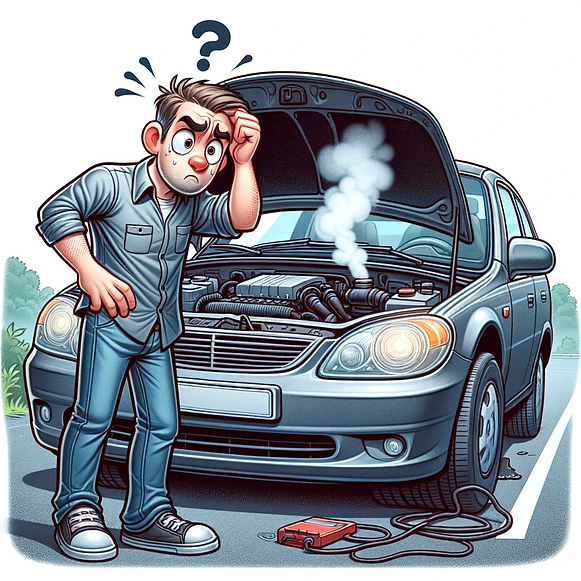
Auto Academy

Shifting Truths: Debunking Common Car Maintenance Myths
Shifting Truths: Debunking Common Car Maintenance Myths

In the realm of car ownership, myths and misconceptions about vehicle maintenance abound, leading to confusion and potentially costly practices. This blog post aims to shift gears and set the record straight by debunking some of the most common car maintenance myths. From the idea that premium fuel always boosts performance to misconceptions about battery care and oil changes, we’ll uncover the truth behind these beliefs. Learn how following outdated advice or over-servicing can affect your vehicle and your wallet. We’ll provide expert insights and advice backed by mechanics and industry standards to help you understand what your car genuinely needs to remain in top condition. Whether you’re a seasoned driver or new to the road, this post will equip you with the knowledge to make informed decisions, ensuring your vehicle receives the care it deserves.
- Premium Fuel: The myth that premium fuel always improves performance and efficiency is debunked. Most cars are designed for regular fuel, and unless your vehicle specifically requires premium, the higher-octane fuel won’t provide additional benefits.
- Oil Change Frequency: The old adage of changing oil every 3,000 miles is often unnecessary with modern lubricants and engine technology. Many vehicles can go 5,000 to 10,000 miles or more between changes; always refer to the manufacturer’s recommendation.
- Engine Warm-Up: Idling your car to “warm-up” isn’t usually necessary for modern engines. A brief period (30 seconds to a minute) before driving is often sufficient, even in cold weather.
- Battery Recharging: The belief that driving a short distance will fully recharge your battery after a jump-start is often false. It usually takes much longer to recharge, and a battery continually needing jumps may need replacing.
- Washing Frequency: Washing your car isn’t just about aesthetics; regular cleaning can prevent long-term damage from dirt and chemicals. However, over-washing, especially with harsh chemicals, can wear down the paint and finish.
- Air Filter Replacement: While a clean air filter is essential for optimal performance, they don’t always need to be changed as frequently as some suggest. Check your filter’s condition and replace it as needed, not just on a set schedule.
- Tire Inflation: Over-inflating tires doesn’t necessarily improve efficiency. It can lead to uneven wear and potential handling issues. Keep tires inflated to the manufacturer’s recommended levels.
- Coolant Flushes: While regular coolant changes are essential, the frequency can vary widely. Modern vehicles often don’t need a coolant flush until 100,000 miles or more, but always follow your manufacturer’s guidelines.
- Dashboard Warning Lights: Ignoring warning lights isn’t advisable, but not every light indicates an immediate disaster. Understand what different lights mean and consult a professional for a diagnosis.
- Use of Aftermarket Parts: The belief that aftermarket parts will void your warranty isn’t entirely true. While it’s essential to choose quality parts, using aftermarket products doesn’t automatically void a warranty.
As we put the brakes on these car maintenance myths, you’re now better equipped to navigate the truths of proper vehicle care. Remember, knowledge is the most powerful tool in your garage. By understanding the realities of car maintenance, you can avoid unnecessary expenses, extend the life of your vehicle, and enjoy a safer, smoother drive. Continue to question the myths you encounter and seek out trusted sources for your car care advice. Drive confidently, knowing you’re making informed decisions that keep your ride running reliably for miles to come.
Event News
Expert Help to Make the Right Car Decision
Car Rookie Your Ultimate Car Shopping CompanionRookie Guide
Recent Posts
Rookie Guide
Mastering the Negotiation: Proven Tactics to Seal the Best Deal on Your Next Car
January 18, 2024Mastering the Negotiation: Proven Tactics to Seal the Best Deal on Your Next Car Negotiating the price…

Mindful Motoring: Unravelling the Psychology Behind Car Buying Decisions
January 18, 2024Mindful Motoring: Unravelling the Psychology Behind Car Buying Decisions Dive into the fascinating world of consumer psychology…

Custom Rides: A Comprehensive Guide to Car Modifications and the Law
January 18, 2024Custom Rides: A Comprehensive Guide to Car Modifications and the Law Venturing into the world of car…

